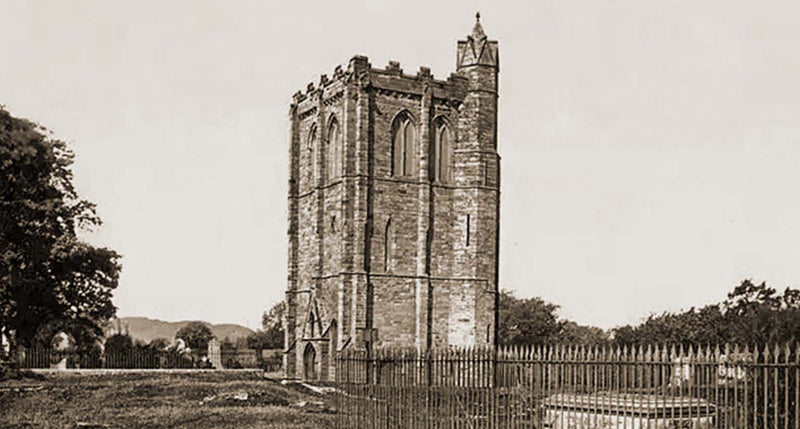Clan History, Clan Infomation
Wishart Clan History
The surname Wishart is the same as the old French name Guischard which derives from the old French word Wischard, meaning ‘prudent’, ‘wise’.
Around the start of the 13th century, a grant of the mill teind to Cambuskenneth Abbey was witnessed by William Wischard.

Cambuskenneth Abbey, near Stirling
In 1245 John Wischard was recorded as having been a witness, and nine years later, in 1254, he is in the records again, this time having been present at the preambulation of the bounds of Conon and Tulloch.
A William Wischard was, in 1250, a Culdee of St. Andrews, and there is record of an Adam Wischard having had a charter of the lands of Kenny Murchardyn in 1279.
Robert Wishart (1271-1316) was Bishop of Glasgow and a strong supporter of William Wallace and later Robert the Bruce. Wishart was central to the cause of Scottish independence and played a key roll during the subsequent wars. Although he swore fealty to Edward of England when captured he renounced it immediately on release and continued to be a thorn in the side of Edward.
In 1296, John Wychard of the Miernes pledged his allegiance to England’s Edward I, along with a number of other Scottish nobles, by putting his name to the Ragman Roll.
Between 1305 and 1307, there is record of an Andrew Wycchard (or Wyschard or Wychard) who was a Scottish prisoner-of-war in Hereford Castle.
George Wischart was convicted of heresy and was burned at the stake as punishment in either 1545 or 1546, in St. Andrews.
After the Restoration, beginning in 1660, another George Wischart was made bishop of Edinburgh, and he was also a private chaplain and biographer of James Graham, the 1st Marquess of Montrose (1612 – 1650). The person who wrote the inscription on Wischart’s grave believed that his name meant ‘Wise heart’: Hic recubat celebris doctor Sophocardius alter, entheus ille Sophos khardian Agricola.
Queen Mary, in 1549, presented James Buchart, or Buschart (said to be the same as Wischart), to the chaplainry named Tolly, or Towie, in the diocese of Ross.
In 1596, a Johnnett Wischart was executed by being burned at the stake in Aberdeen for witchcraft.
There is record of a James Wysehartt, or Wisehartt, being a burgess of Montrose, in Angus, in 1649, and in 1686, in Edinburgh, a John Wishit was a prisoner in Canongate Tolbooth.
Recorded variations of the surname Wishart include Visart, Vischart, Vishert, Vychart, Vyschart, Wischarte, Wischeart, Wiseheart, Wissheart, Wschartt, Wschert, Wyischart, Wyishart, Wyschart, Wysharde, Wyssart, and Wythcharde.

